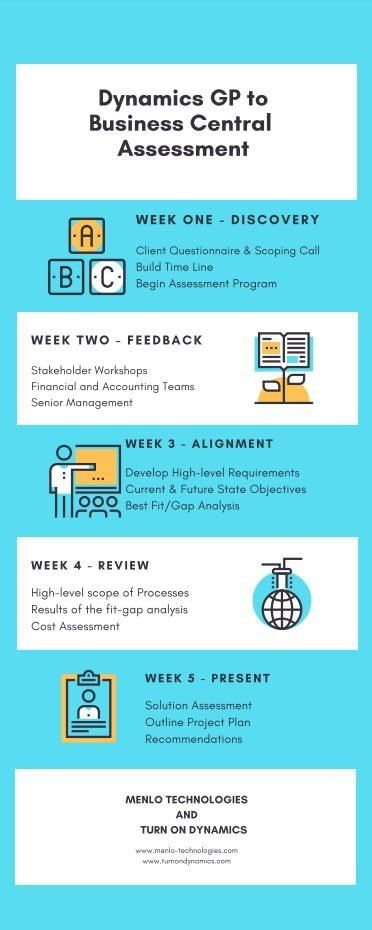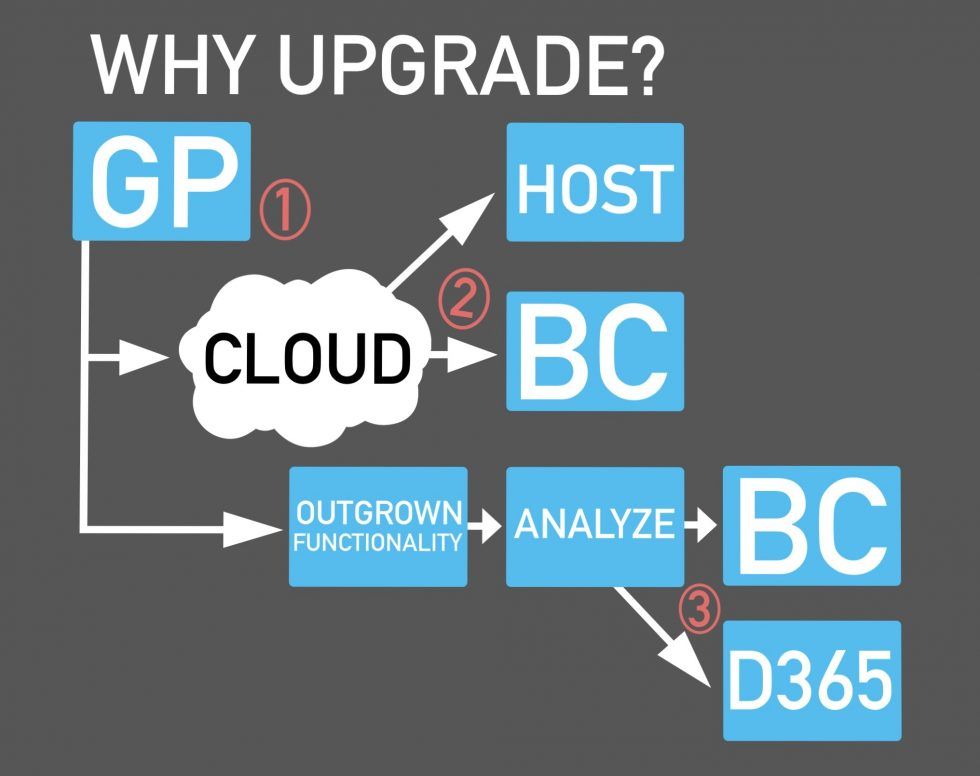Peter Joeckel, with more than thirty years in the ERP business helping companies select and implement software solutions, is in a unique position to offer alternative solutions for “tried and failed” ERP software selection and implementation strategies. Whether you’re in the middle of a challenged implementation or just beginning to research available resources, contact Peter and the TurnOnDynamics team today.
The Myth of the Big Important ERP Partner
THE ISSUE
The recent purchase of a big, important partner in our industry was followed by a slew of articles about the transaction with glowing accounts by the owner extolling his own business acumen. Those articles were nearly impossible to read without bringing to mind numerous accounts of a large, “challenging” ERP implementation where the same partner was failing spectacularly despite hundreds of thousands of dollars in billings and a rotating cast of consultants.
The highlight for me on this project was the sleepy consultant who tried to hide away in the company boardroom for daily naps. It worked pretty well, until the President of the company walked in on him mid-slumber. Fortunately for him, he hadn’t changed into his jammies.
Unfortunately, in the industry, challenged or failed ERP implementations with “Big Important Partners” such SNAFU’s happen more often than not. These BIP’s have unintentionally created a thriving, secondary implementation economy composed of smaller specialty firms and independent consultants that specialize in “mop-up” operations. It is with these firms and individuals that you will often find the best technical resources in the industry.
In anticipation of the “mop-up” crews needed when working with BIP’s, major ERP vendors have project escalation processes and teams. Typically, the cycle looks something like this:
- BIP makes fancy promises they don’t fulfill and ERP Customer is unhappy.
- Unhappy Customer reaches out to Software Publisher to express concern.
- Software Salesperson listens carefully and promises to have harsh talk with Partner.
- Publisher Salesperson talks to Sales Manager about the issue, and they have a conference call with the Partner to see if this issue is going to affect quarter-end sales.
- BIP promises Customer to do better and write-off some implementation dollars.
- Customer eventually switches Partners or calls the Software Publisher to discuss legal remedies.
- Software Publisher Legal Team introduces Customer to the reality that the payroll of their in-house legal department is larger than the GNP of Western Europe.
- Escalation team at Software Publisher calls smaller, unknown-but-dependable, Implementation Partner to save the day.
- Sales Teams from BIP are presented various partner awards at swanky resorts during annual mutual back slapping events.
- Rinse. Repeat.
If you’re in the middle of a struggling ERP implementation, you may recognize the symptoms of the Big Important Partner myth and its effect on your project. If you’re in the process of changing or selecting a partner for a new ERP implementation, understanding partner-related ERP project issues may save you time and money. And maybe an ulcer, your job, or even your company.
THE PROBLEMS WITH A BIG IMPORTANT PARTNER
Having worked in a wide variety of business models in the ERP implementation world for more than 30 years, my observations are grounded in real-world experience. It turns out that I learned several critical ERP implementation lessons on my first job fresh out of college; I just wasn’t smart enough at the time to fully appreciate what I’d learned.
First and foremost is the “nobody ever got fired for hiring IBM” thinking of ERP implementations. In the “olden days” it was taken as gospel that many IT projects would go to an IBM solution because they were considered the gold standard in the industry. Therefore, by selecting IBM, decision makers sought to insulate themselves and their paychecks against potential criticism by making the “safe choice.” Today, you see companies hiring ERP implementation partners for the same reason. Big Important Partners give them the sense of comfort that they are in good hands.
I started my career working for a big partner, a real big partner: Price Waterhouse. At the time Price Waterhouse was not yet PWC and part of the admired “Big Eight” group of accounting firms. Interestingly, a saying I was soon to learn was that in the Big Eight, “The good leave, the bad leave and the mediocre prosper.”
I also learned that experienced partners and senior managers sold projects on the promise of size, references, and an endless pool of experienced resources. However, I was sent out as a seasoned consulting resource with a meager opportunity to get up to speed on software that I had never seen before. In the ERP space, I have seen this play out over and over, resulting in failed or mediocre ERP implementations that are over budget, over time, and not delivering on promised functionality.
Having been exposed to multiple business models in the industry I have come to see that there are fundamental drivers behind the behavior of the Big Important Partner firms that put them fundamentally at odds with their customer base and will forever hamper their ability to deliver excellent projects. These include:
- Net new pressure
- Overhead and scarce resources
- Resource baiting and switching
- Mergers and acquisitions and VC money
Let’s look at these issues one by one.
1. NET NEW PRESSURE
Software partners are rewarded primarily by their ability to sell new software deals or “net new.” The more you sell, the bigger the software margins, and end-of-year trips to resorts for fancy sales types and their spouses or girlfriends/boyfriends. Some bring both.
Sure, they pay lip service, and the occasional attempt to install implementation satisfaction metrics, but at the end of the day, new sales are king.
This conversation has NEVER happened at quarter, or especially fiscal year-end:
Partner: “I know we have had trouble getting our last several projects up and running, but just this once, could you look the other way and let us place this big order?”
Software Publisher: “We are sorry but our management is standing by our principle that every implementation has to meet strict satisfaction requirements for us to allow you to sell new deals.”
But wait; it gets worse…
The pressure to maintain the highest software margins creates incredible pressure to constantly sell new deals. Of course, large sophisticated ERP projects are, by nature, complex, expensive to sell, and have fierce competition between products and within product lines with competing partners.
This environment leads to two common sales strategies: Discounts, and dishonesty about the budget, timeframe, and software capabilities.
The typical project manager on an ERP implementation is easy to identify: He or she has the constant look of surprise/horror permanently imprinted on their face when they learn what the sales team promised the customer. In fact, a list of ERP project managers is worth its weight in gold for Botox providers.
2. OVERHEAD AND SCARCE RESOURCES
The double-edged sword plaguing a successful software product is a lack of quality resources to implement all projects with high quality teams.
Good ERP resources are brutally difficult to identify, hire, and keep. Especially in a hyper-competitive market that promotes job jumping and resource poaching. Great ERP resources are nearly impossible to find. They exist, but you just don’t know how to find them.
This shortage of resources inevitably creates an environment where top sales partners must staff projects with new, untested and often poor resources. Unfortunately, these resources demand high salaries and jump jobs with ever increasing offers of bigger and better compensation packages.
The result is predictable, poor implementation projects, write-offs, and more pressure on the bottom line. The resulting pressure creates poor morale on projects for both the customer as well as the implementation resources. Both move on to new partners and the cycle starts all over again.
3. RESOURCE BAIT AND SWITCH
Two other important lessons I learned early in my consulting career are that it does not matter how big a firm is or how many consultants they employ, what is important are the guaranteed resources that they can staff on yourproject. The key word here is “guarantee.”
Which leads us to the second lesson, impressive partner level resources may very well sella project, but it is the rotating cast of B and C team players who end up staffingmost projects.
In my career, I was consulting on software that I had learned about the day before. Even companies that offer “extensive” training to college grads send out armies of robots who know which buttons to push but have no business experience or savvy.
4. MERGERS AND ACQUISITIONS AND VC MONEY
If you were to combine the first three problems, they would still be dwarfed by the fourth. Running a profitable ERP sales and implementation firm is difficult for three reasons:
- Complexity of business
- Scarcity of resources
- Cost of acquiring new business
Mergers and acquisitions and VC activity, by their nature, take money out of businesses because they demand high return for investors. This leads to an increased sales pressure, over-promising on projects, and the inevitable challenged or failed projects.
THE BOTTOM LINE
Avoid these pitfalls on your current or planned ERP project by hiring a Great Team rather than a Big Important Partner. If you are already locked into working with a BIP, consider asking for guaranteed, vetted resources.
In either situation, we can help avoid catastrophic failure. TurnOnDynamics (TOD) is a specialty, consulting firm that focuses on Microsoft Dynamics AX/D365. We are a partnership of senior AX consultants (no juniors learning on your dime) that specializes in providing high-level consulting services and fresh ideas to management teams implementing Dynamics AX, both new and challenged.
In my next post I will talk about the benefits of hiring a great team rather than an average partner or a sole practitioner.
ABOUT THE AUTHOR










